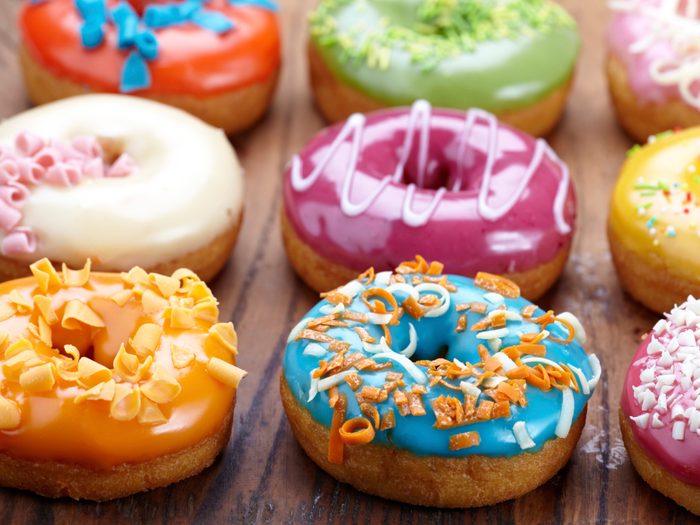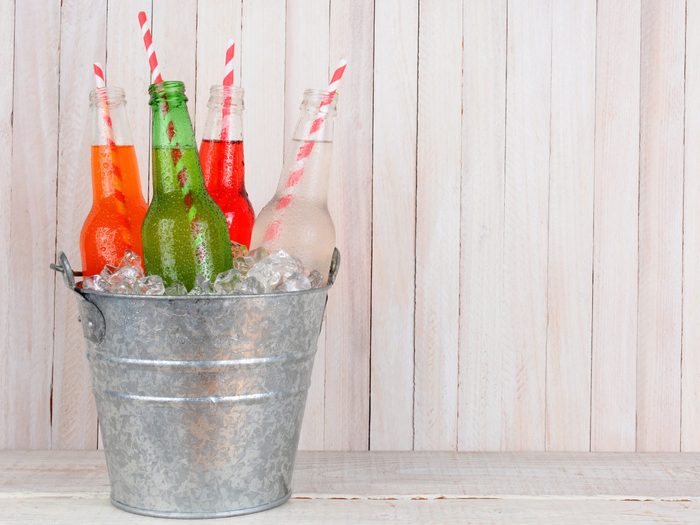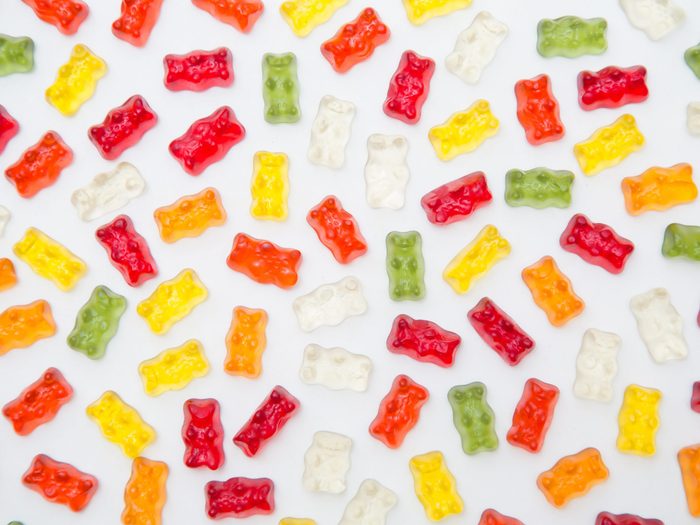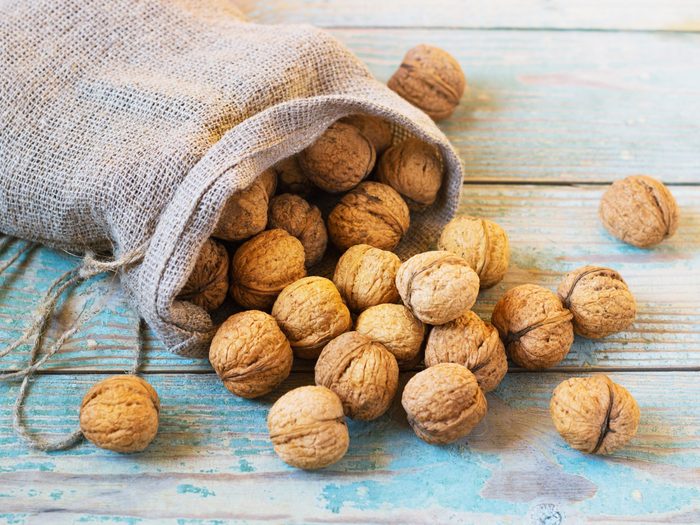
Enjoy Sweets in Moderation
It’s common knowledge that sugar contributes to tooth decay. What many people don’t know, however, is that the frequency and duration of exposure makes a difference.
“I’ll enjoy desserts, chocolate cake and all those things, within moderation, but then I make sure that after the meal I rinse my mouth with water or chew a piece of sugarless gum,” says Dr. Swan, who acknowledges that brushing after every meal and snack is not realistic for most people. “When you have sugars in your mouth, bacteria digests those sugars and produces acids. It’s the duration of the acid attack that contributes to tooth decay.”
If you like candy, minimize the damage to your teeth by eating it quickly, rather than spreading it throughout your day, says Dr. Swan. “Generally speaking, having one candy in your mouth for several minutes is not the end of the world, but having one and then another and another over a long period of time would be an issue.”

Avoid Soft Drinks
Dentists avoid sugary, acidic beverages, which slowly wear down tooth enamel. The biggest culprit: Soft drinks. A 330-mL can of pop contains a whopping 10 teaspoons (about 50 mL) of sugar. According to Dietitians of Canada, a large soft drink from a fast-food restaurant contains about a third of a cup (85 mL) of sugar. And Canadians love their pop: Each year, we each drink about 110 litres of the stuff. Do your mouth a favour and cut back. (And don’t think you’re safe with diet soda-it’s sugar-free but still acidic.)

Limit Your Alcohol Intake
Alcohol is also acidic and can contribute to tooth erosion. Knowing this won’t stop anyone from enjoying a glass of shiraz with dinner, of course, so Dr. Swan suggests taking measures to counteract the acidity. “If you’re a wine drinker, you should probably have a piece of cheese to help neutralize the acid in your mouth, or have a glass of water or chew gum.”

Steer Clear of Sticky Foods
Sticky foods hang around in the mouth longer. Sweets such as toffee and gummy candy are obvious offenders, but healthier choices, such as dried fruit, can also cause problems. “Raisins are nutritious, but they and other dried foods can stick to your teeth,” as can foods such as breads and doughnuts, says Dr. Swan. (People who have braces or orthodontic work should be especially careful to avoid sticky foods, which can damage brace wires and brackets.)
Brush your teeth at least twice a day, floss daily and see your dentist regularly to reduce your chances of tooth decay.

Eat Soft Foods
We’ve all heard horror stories about people biting hard foods and breaking off a piece of tooth. You’re most likely to experience this problem if you have large fillings. “If you’re biting down on hard food-nuts, perhaps-there’s a risk that a portion of the enamel is going to break away from the side of the tooth,” says Dr. Swan.
Avoid very hard foods and don’t chew ice. If you do break a tooth, get yourself to the dentist as soon as you can.
Related features:
6 Healthy Teeth-Whitening Tips
6 Ways to Soothe Sensitive Teeth
5 Dental Symptoms You Should Never Ignore